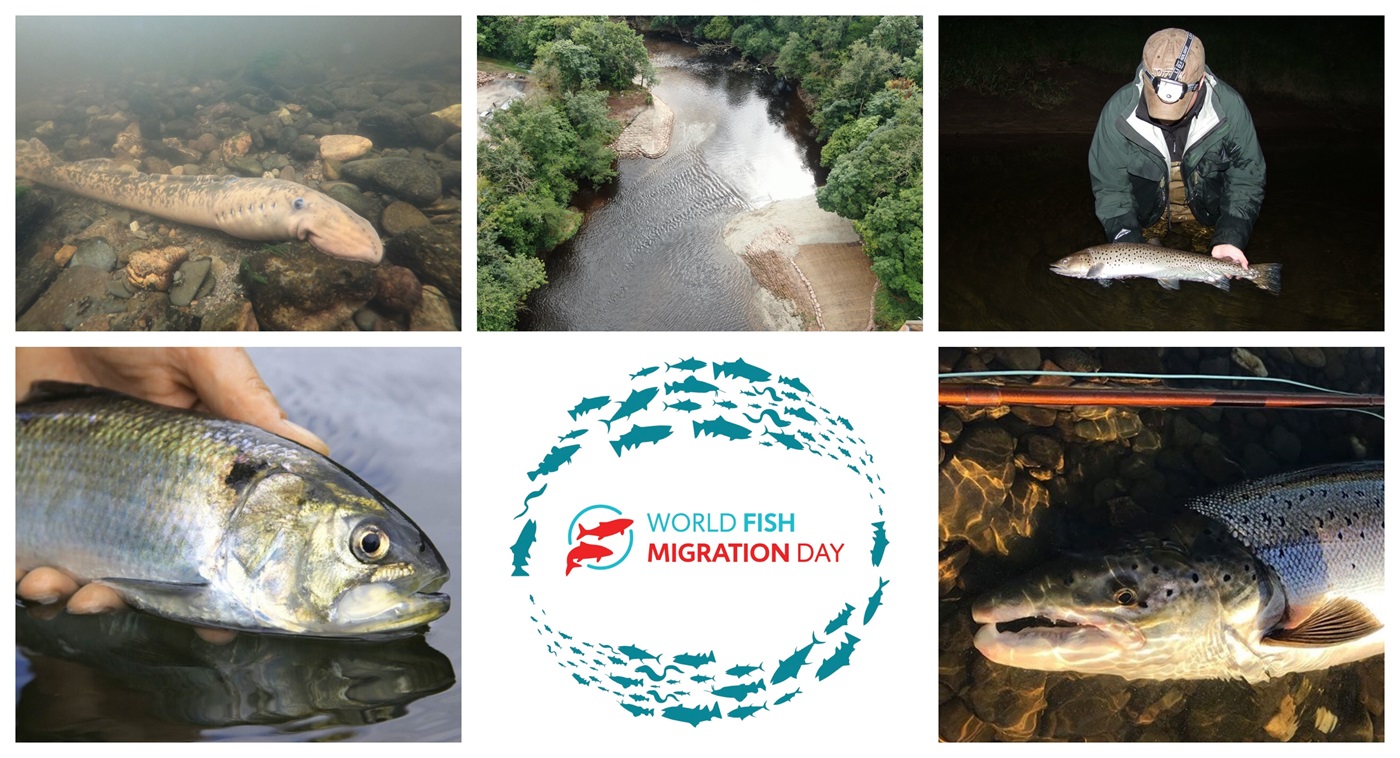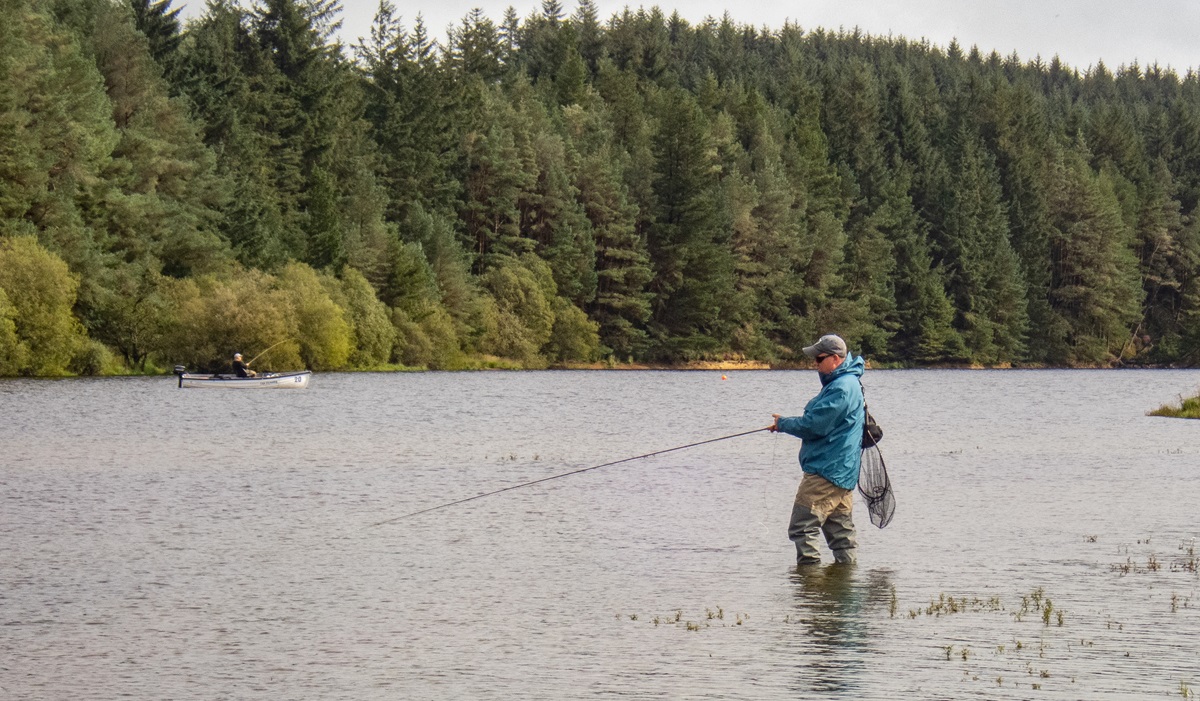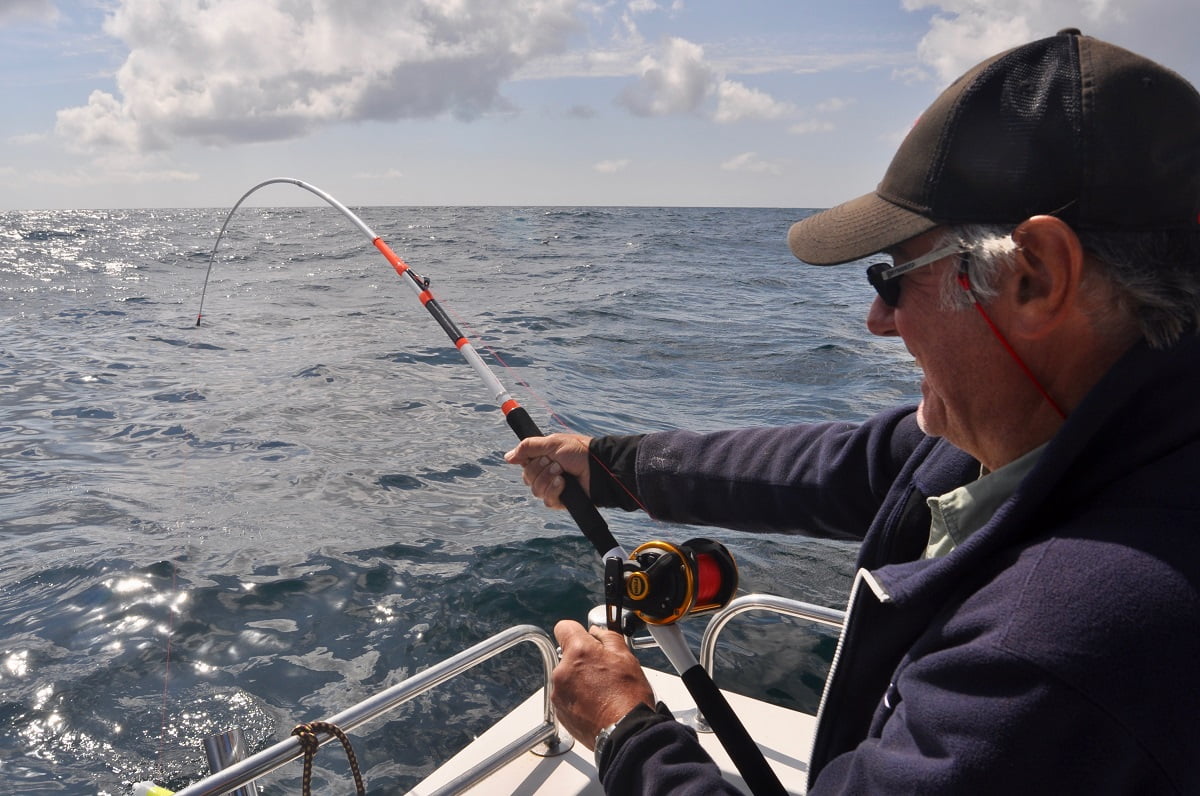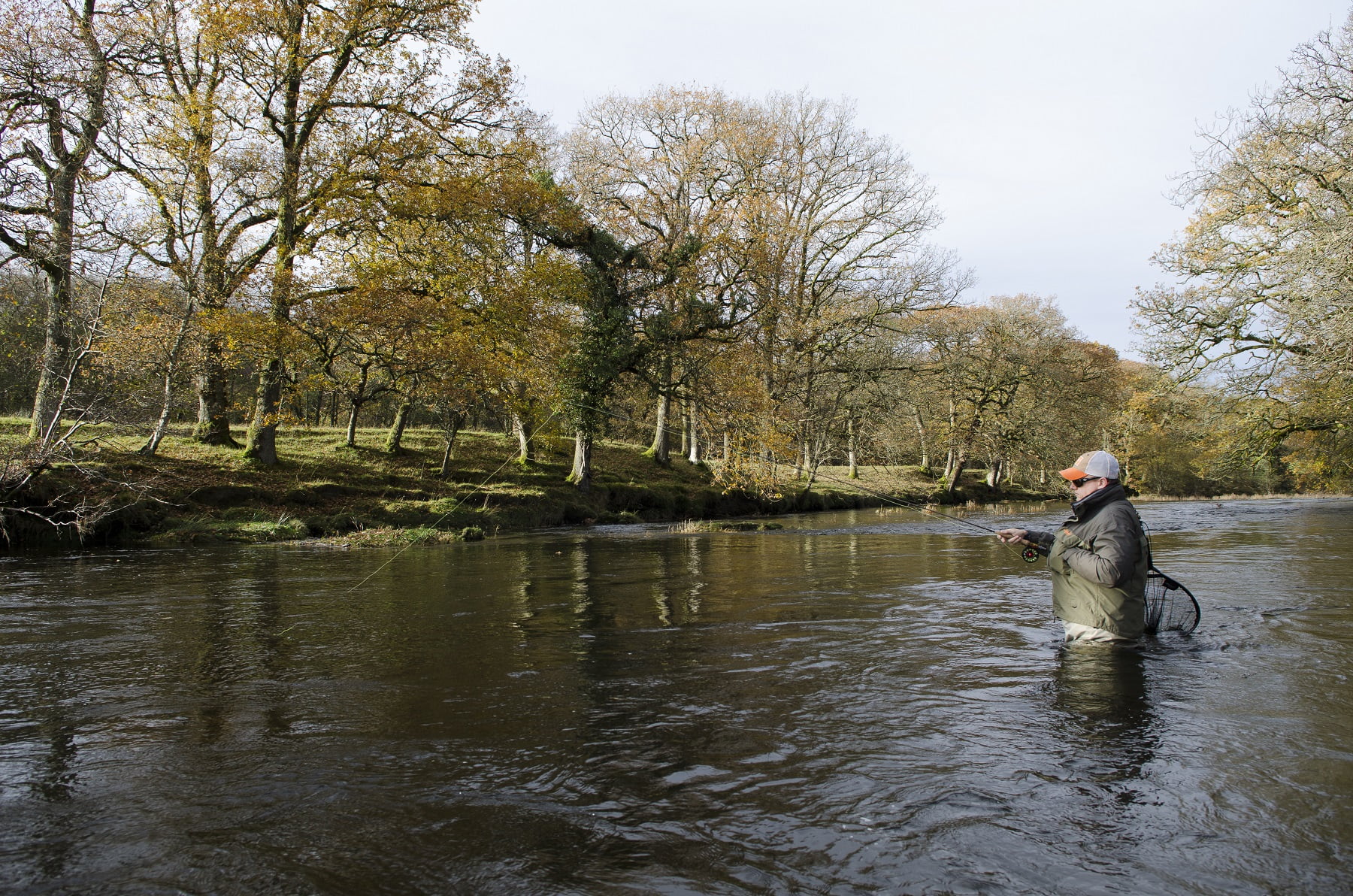World Fish Migration Day: Celebrating and Safeguarding Wales’ Iconic Migratory Fish
Every two years, World Fish Migration Day (WFMD) shines a spotlight on the incredible journeys undertaken by migratory fish species across the globe.
In Wales, our rivers are home to some of the most remarkable travellers in the natural world — species including salmon, sea trout, shad and eels.
As we mark WFMD on May 21st, it’s the perfect time for the angling community to celebrate these species, while reflecting on the vital role we can all play in their conservation.
Wales’ Migratory Fish
Atlantic Salmon (Salmo salar)
Arguably the most iconic migratory species in Wales, the Atlantic salmon makes an epic journey from freshwater birthplaces to the North Atlantic and back again to spawn. Welsh rivers like the Tywi, Teifi, Dee, Conwy, Usk and Wye have long been famed for their salmon runs.
However, due to a number of factors, salmon numbers have declined drastically in recent years across all of Europe, and today, catch and release of all salmon is mandatory in all Welsh rivers. There are also strict regulations for anglers, such as single barbless hooks and various method restrictions. All salmon anglers should familiarise themselves with the rules here.
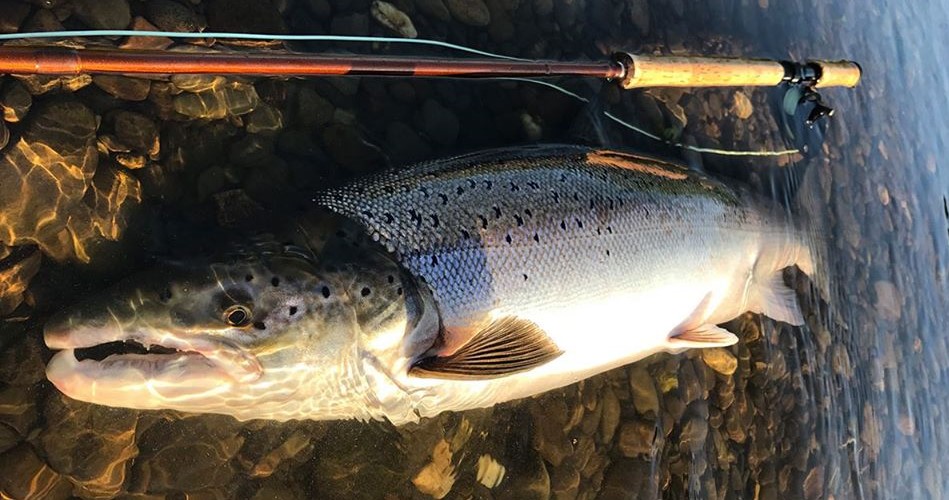
Sea Trout (Salmo trutta)
Also known as ‘sewin’ in Wales, sea trout are a migratory form of brown trout that venture to sea to feed before returning to freshwater to spawn. A treasured catch for many Welsh anglers, sea trout are subject to a strict size limit and method restrictions, helping to ensure that both immature and breeding individuals are protected.
On all Welsh rivers, only fish within a designated size range may be retained – all sea trout greater than 60cm must be released with minimum injury and delay. Check out the full bylaws before fishing.
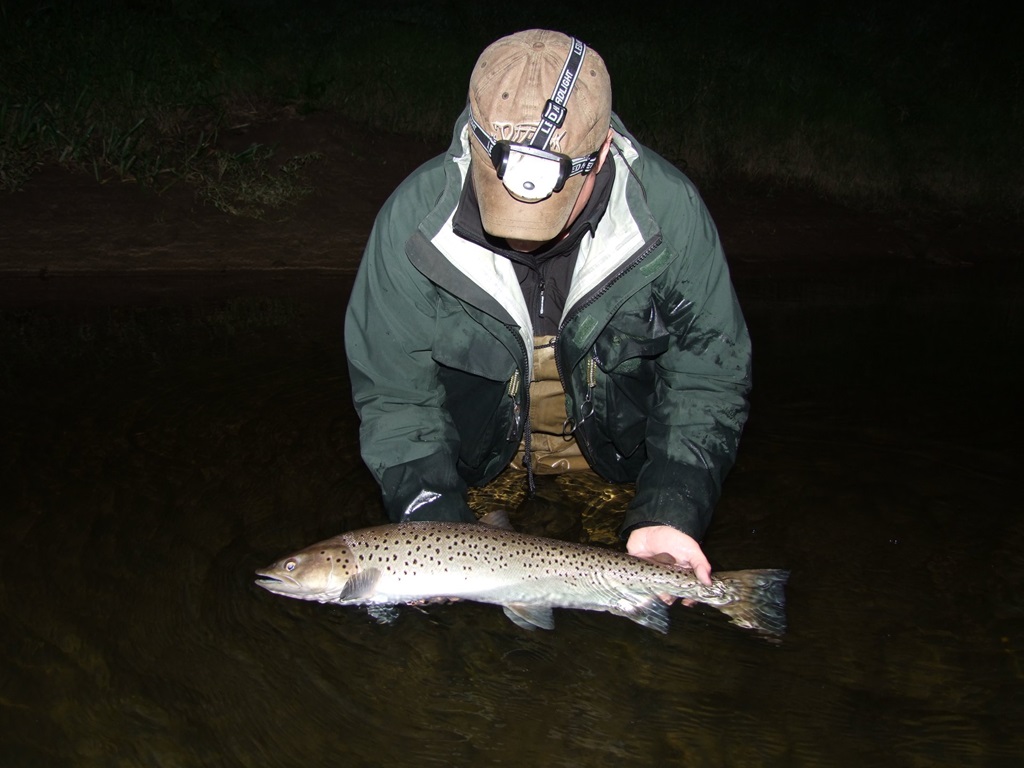
Twaite Shad (Alosa fallax) & Allis Shad (Alosa alosa)
Once abundant, shad are now one of the rarest migratory fish in the UK. These silvery plankton-feeders undertake their own upstream journeys in spring, often alongside sea trout and salmon, They are most often seen on the Wye, Usk and Tywi in May and June.
Anglers must not target or retain shad – they are protected by law under Schedule 5 of the Wildlife and Countryside Act. If you encounter one while fishing, it must be released immediately and unharmed.
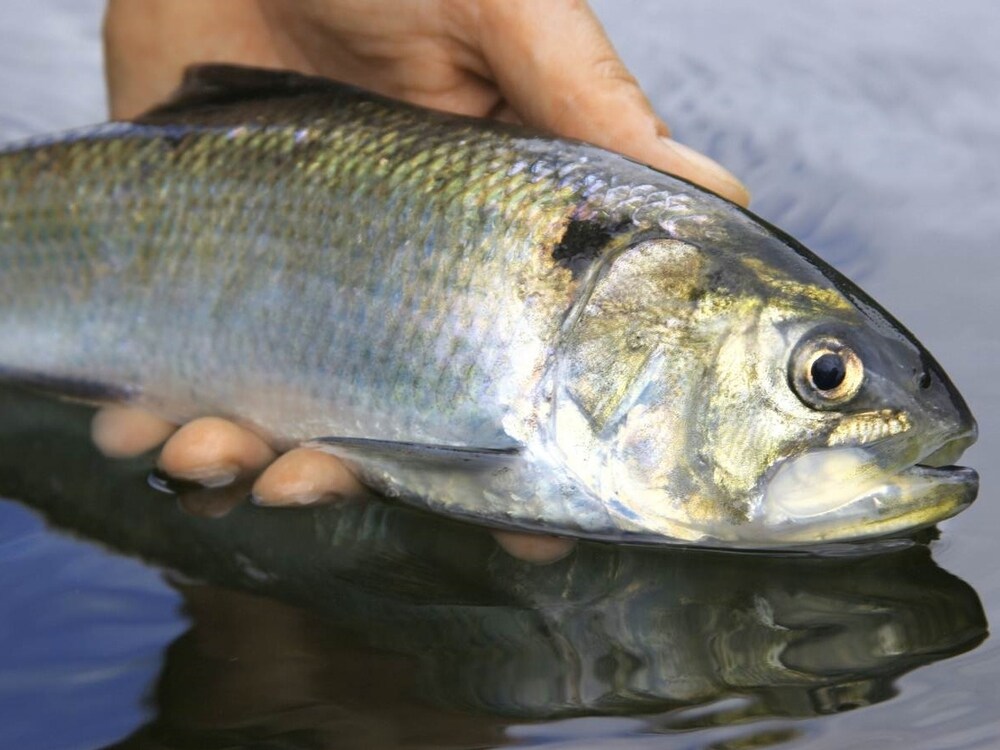
European Eel (Anguilla anguilla)
Perhaps the most mysterious of them all, the European eel spawns in the Sargasso Sea before embarking on a transatlantic migration to Welsh rivers and lakes. Sadly, eel numbers have plummeted by over 90% in recent decades.
In Wales and England, removal of eels for any purpose is no longer permitted due to their endangered species status. All eels caught on rod and line must be returned to the water as soon as possible.
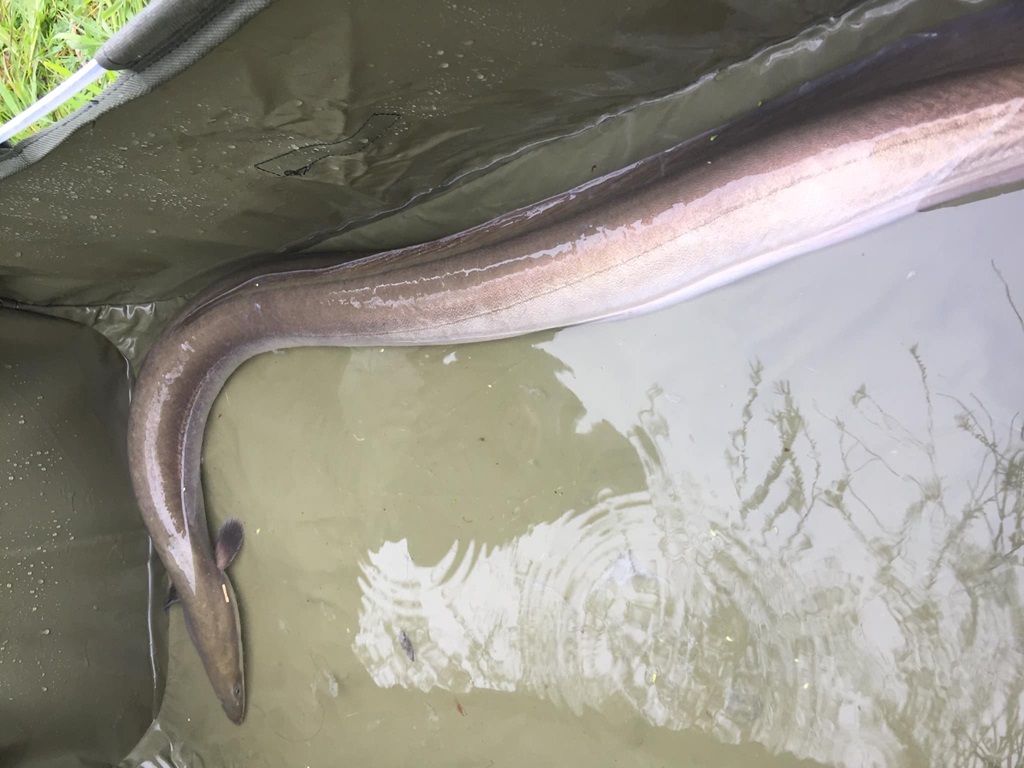
Sea Lamprey (Petromyzon marinus)
The sea lamprey is one of Wales’ most ancient fish species — a jawless, eel-like creature that predates dinosaurs. Though only occasionally encountered by anglers, this species plays a role in river ecology.
After living in the sea for two years, sea lamprey returns to freshwater rivers like the Conwy, Dee, Wye, Taff and Usk to spawn, digging nests in gravel beds. Their spawning can help aerate the riverbed, benefitting other fish like salmon and trout. They do not feed in freshwater so do not predate on other fish species or pose any risk to humans.
Sea lamprey are strictly protected by law and must not be fished for or disturbed. Their populations are vulnerable due to pollution, river barriers, and habitat loss — making restoration work even more crucial to their survival.
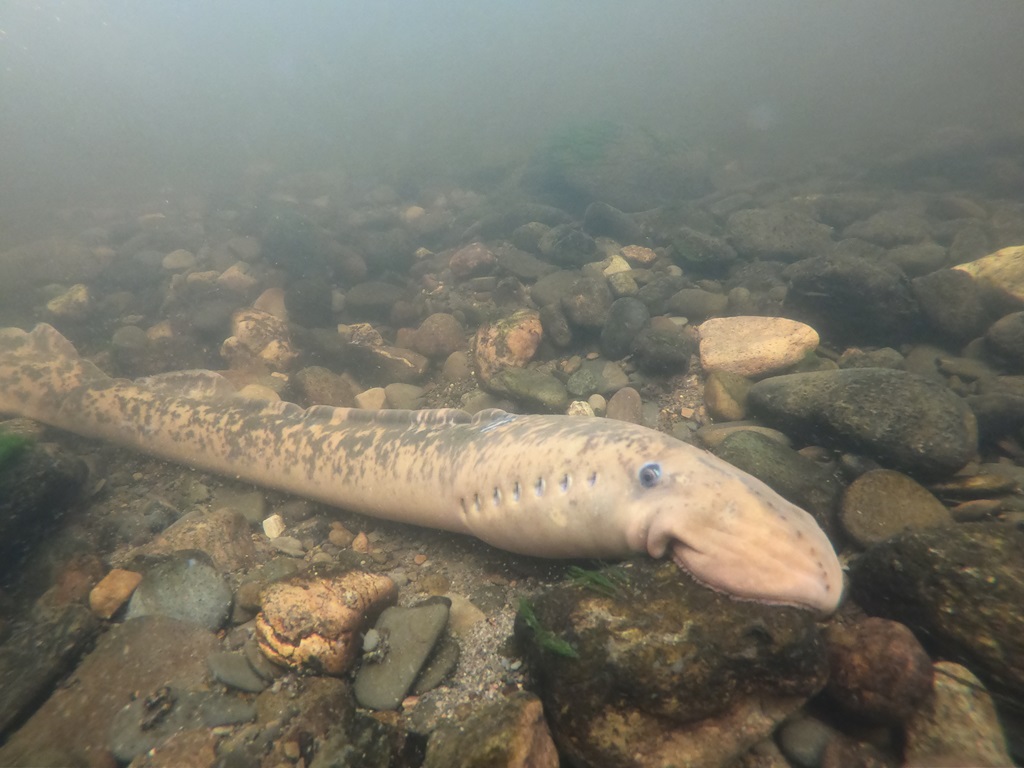
How Anglers Can Help
As custodians of the water, anglers are in a unique position to help protect migratory fish and the habitats they depend on. Here’s how:
- Buy a salmon and sea trout rod licence – If you fish for salmon or sea trout in Wales, you must hold a valid migratory rod licence from Natural Resources Wales (NRW) or the Environment Agency (EA) These licences help fund conservation efforts and research.
- Follow local bylaws and closed seasons – Bylaws vary by river and season and are designed to protect fish during critical life stages. Always check the latest NRW regulations and open seasons before fishing.
- Practice catch and release – Even when not required by law, voluntary catch and release helps safeguard vulnerable stocks.
- ‘Keep em wet’ – Ensure fish are kept in the water and are not handled unnecessarily for photography, especially in warm conditions. Fish should be carefully revived. If water temperature exceeds 18 degrees C, consider stopping all fishing for migratory salmonids.
- Report pollution or obstructions – If you see pollution, poaching, or barriers to fish movement, report it immediately to NRW. This is now made even easier online.
- Join a local club or work with a rivers trust – Many angling clubs work with conservation groups on habitat restoration, monitoring and education.
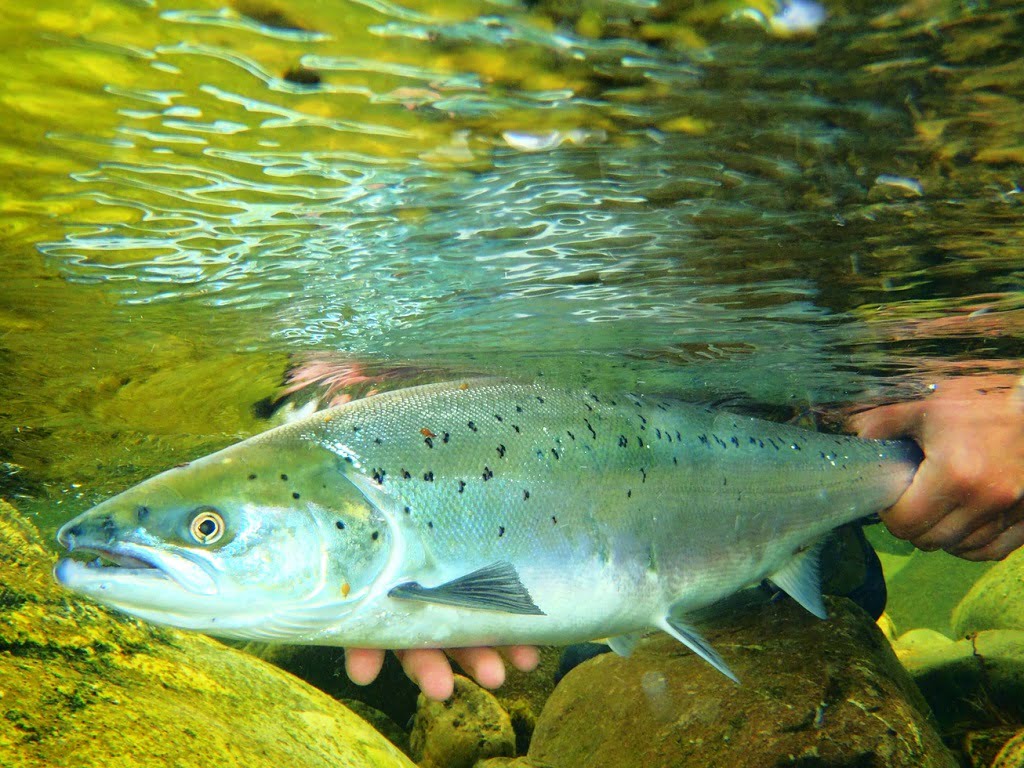
Restoring Rivers: Habitat Work in Action
Migratory fish need free-flowing rivers and healthy habitats to thrive. Across Wales, significant work is underway to remove barriers, improve spawning grounds, and reconnect fragmented ecosystems.
Weir and barrier removal is a major focus, these projects remove outdated infrastructure that blocks fish passage and restore natural flow to rivers, opening up hundreds of kilometres of spawning habitat.
In Wales NRW has progressed several initiatives to significantly improve river habitats and remove barriers to migration to protect salmon and sea trout.
Through a combination of NRW-led and collaborative efforts with partners like Afonydd Cymru and the six rivers trusts in Wales, NRW has supported or delivered projects to restore stream habitats and dismantle barriers such as weirs, enabling fish to migrate upstream more easily.
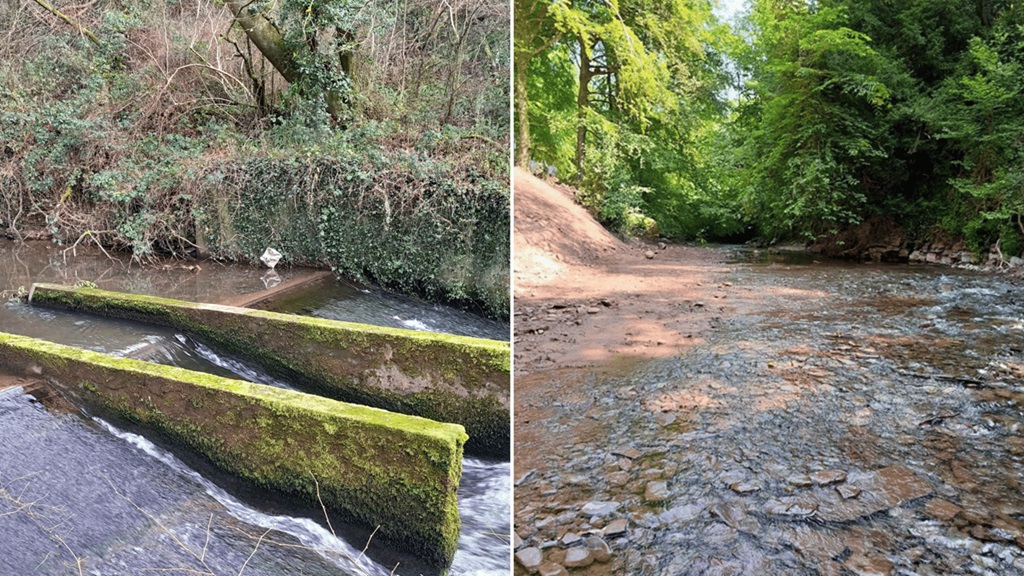
These initiatives have been enabled by funding from the Welsh Government’s Nature and Climate Emergency (NaCE) fund, which has provided over £2 million each year to support these vital river conservation efforts.
So far, these projects have delivered improvement to over 160 barriers, improving access to more than 920km of river habitat. They have also undertaken more than 290 river habitat restoration schemes, on 358km of river.
NRW has also secured substantial EU LIFE funding to improve the condition of Welsh rivers designated as Special Areas of Conservation.
The £6.8 million LIFE Dee River project focuses on restoring the River Dee’s ecosystem by improving fish migration, biodiversity, and water quality.
Similarly, the Four Rivers for LIFE project, with over £9 million in funding, aims to restore the Teifi, Tywi, Cleddau, and Usk rivers by enhancing fish passage, re-naturalizing river sections, and reducing agricultural pollution. In 2024, the LIFEDeeRiver project removed Erbistock weir, the largest weir removal project carried out in Wales to date.
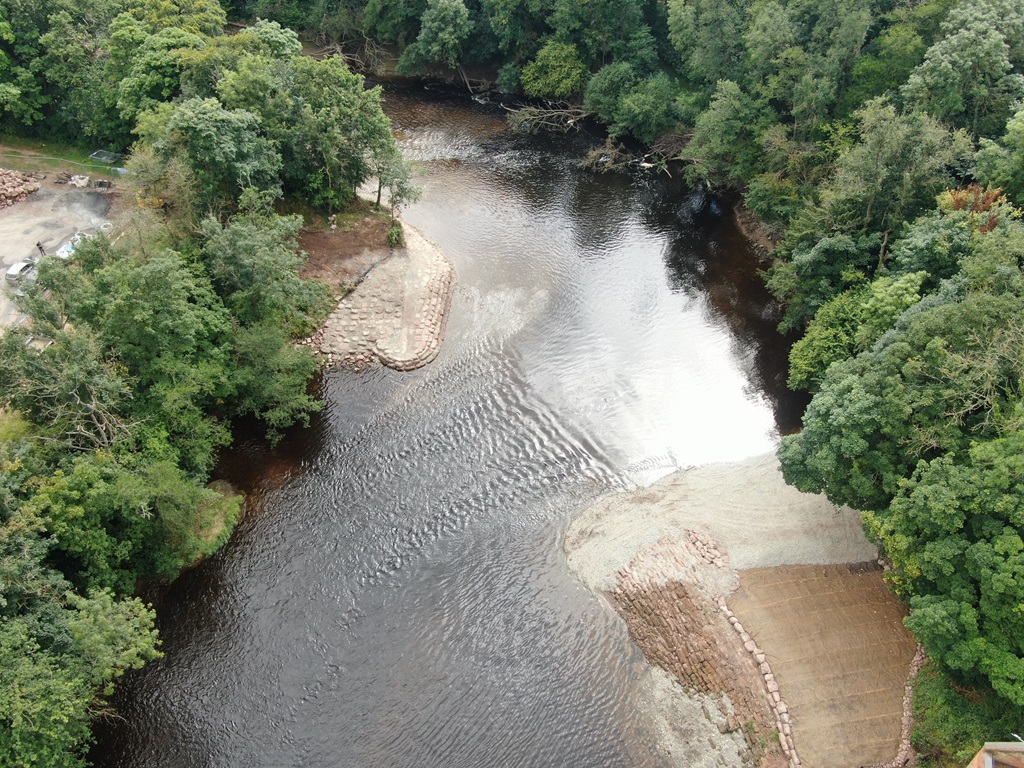
Anglers are often involved in these efforts, whether through volunteering, citizen science or simply lending support by being responsible stewards on the bank.
A Shared Responsibility
World Fish Migration Day reminds us that the future of Wales’ migratory fish lies in our hands. Anglers, conservationists, and communities must work together to ensure that salmon, sea trout, shad, eels and lamprey can complete their journeys for generations to come.
By respecting the laws, supporting conservation projects, and championing healthy rivers, we can all play a part in keeping Wales’ wild fish migrating.
Fish Pass Story Links:
Natural Resources Wales / Scheme to aid natural fish passage at Ammanford weir
Natural Resources Wales / New fish pass will improve migratory access on the Afon Clydach
Natural Resources Wales / NRW to enhance fish and eel passage at Afon Gwyrfai weir
Natural Resources Wales / Honddu weir removal provides boost for vulnerable fish
Natural Resources Wales / Weir removal set to bring multiple benefits to West Wales river
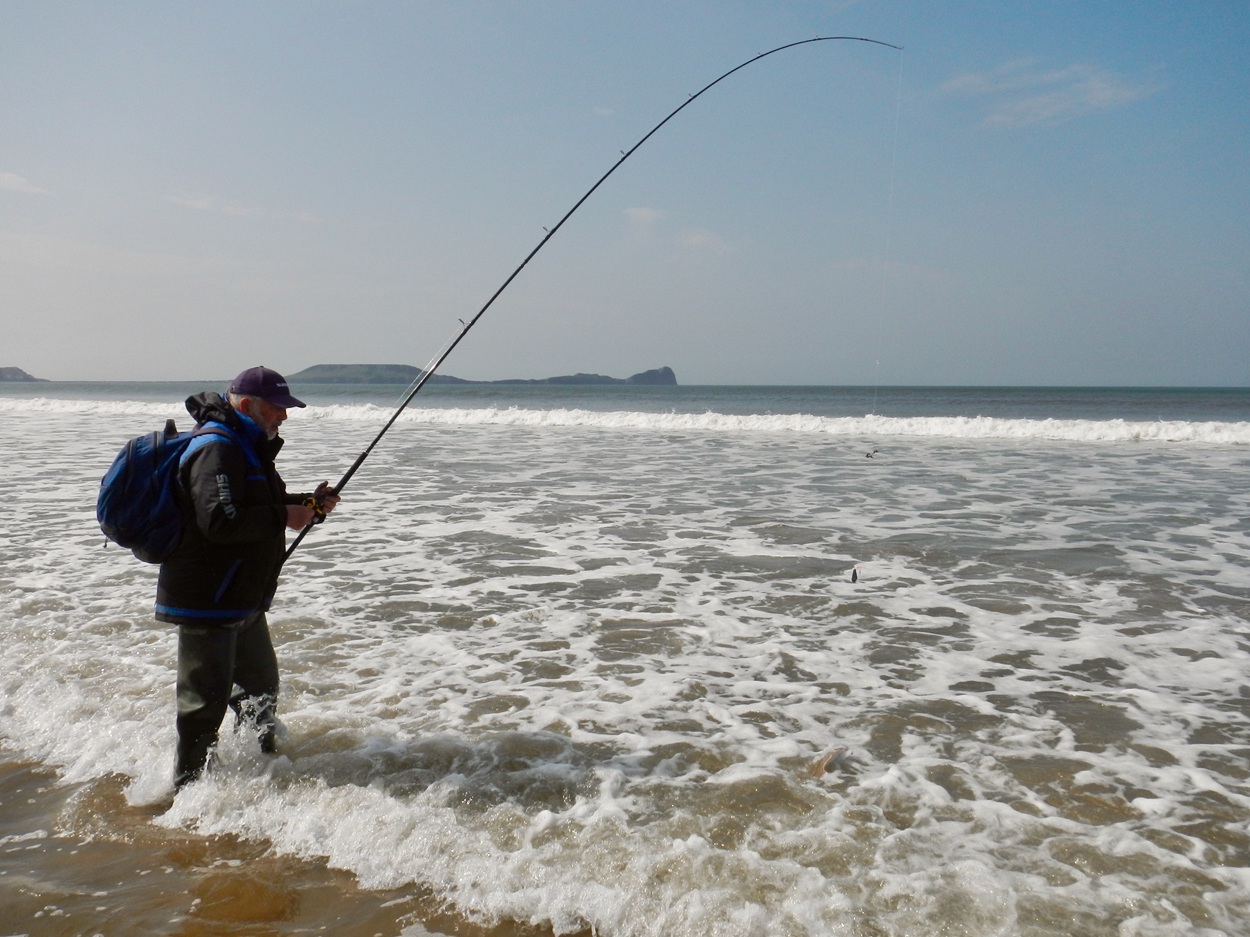
Sea Fishing Wales' Top 10
I have been asked to write a blog profiling my favourite top ten fishing venues in Wales. On the face…
Read More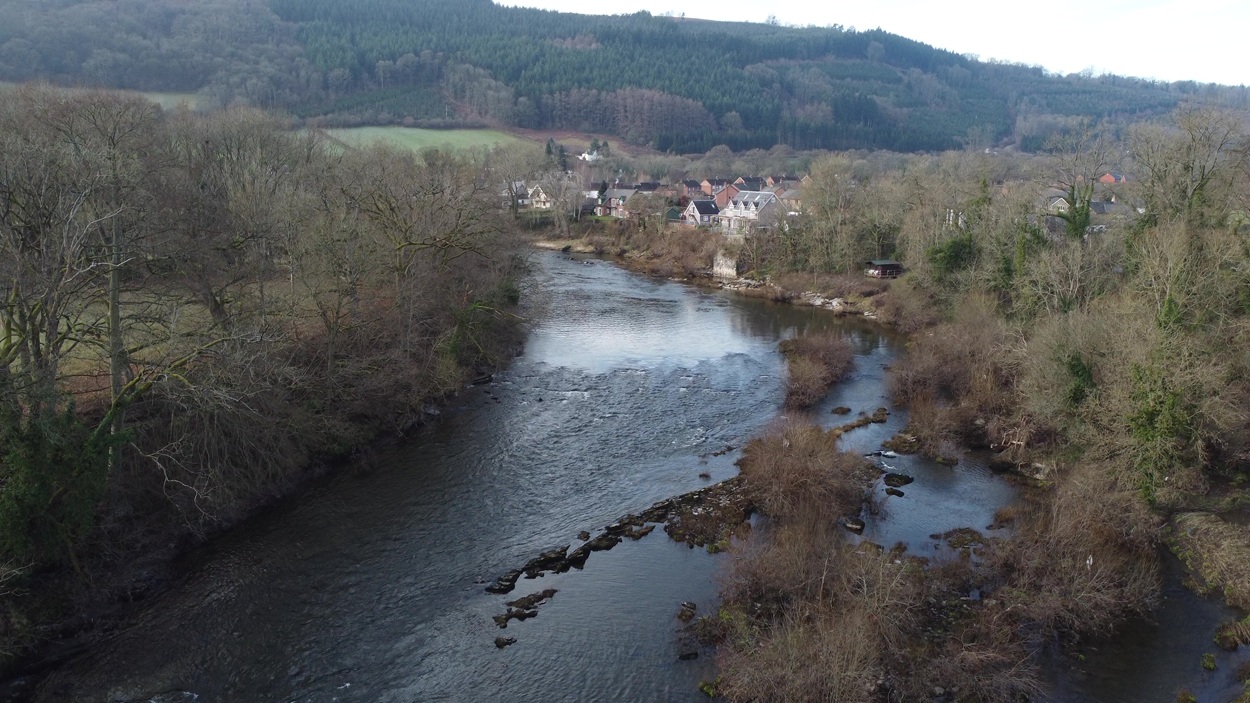
Wye & Usk Foundation Fishing Passport News
The latest newsletter from WUF – with details of fishing opportunities for Wales!Contact The Fishing Passport for more information and…
Read More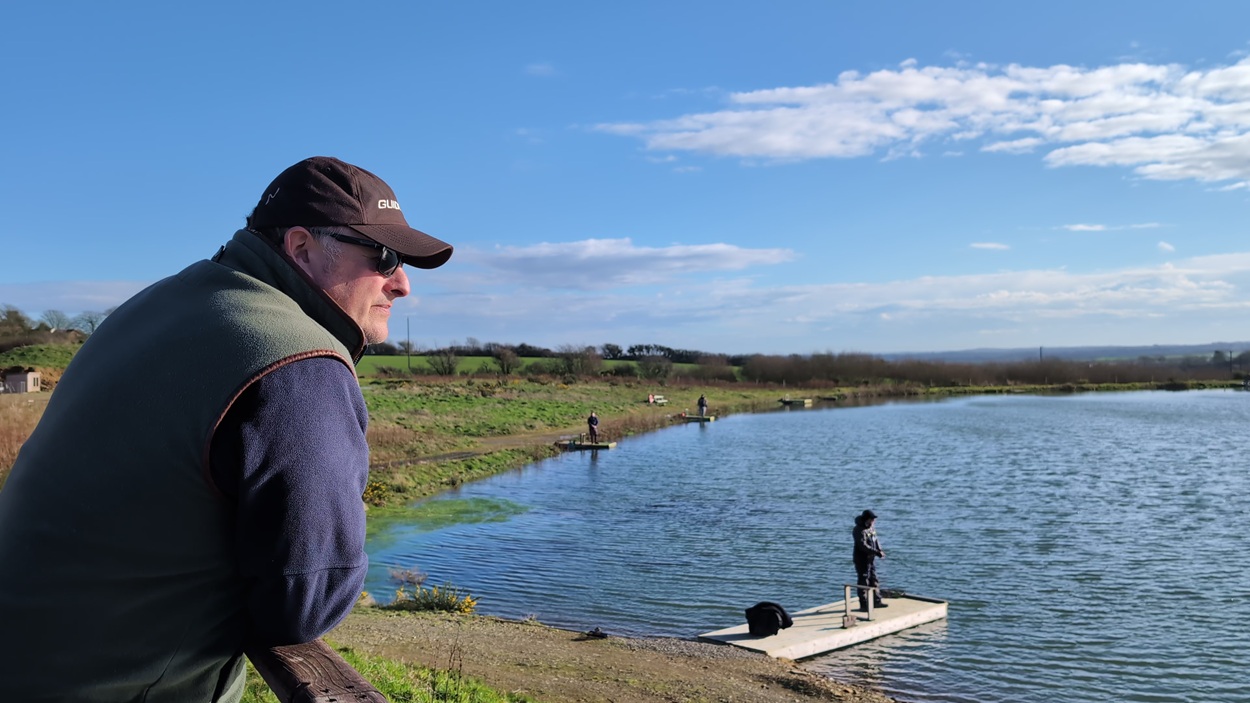
Fishery Profile VIDEO: Foxhill Trout Fishery West Wales
We visit Foxhill Fishery, a trout fly fishing venue near the village of Camrose, just outside Haverfordwest in Pemrokeshire.
Read More
